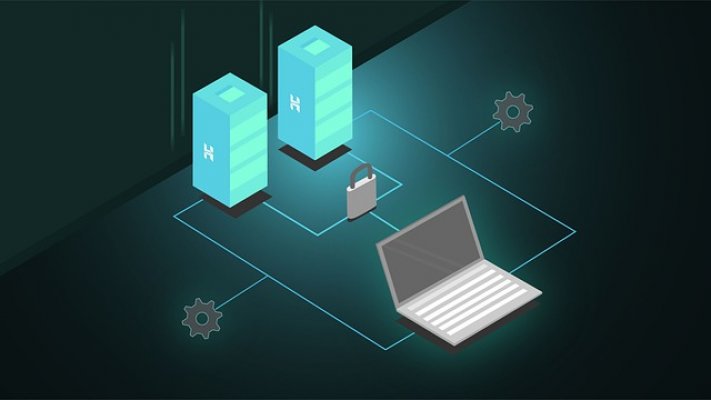In today's digital age, data security is a critical concern for businesses of all sizes. From customer information to financial records, businesses store a vast amount of sensitive data that must be protected from cyber threats and data breaches. Implementing effective data security measures is essential to protecting your business and your customers from the potentially devastating consequences of a data breach. Therefore, in the text below, we have gathered some useful tips for implementing effective data security measures for your business. Read on! 
The first step in implementing effective data security measures is to conduct a thorough risk assessment. This involves identifying all of the sensitive data that your business stores, such as customer information, financial records, and intellectual property. You should also identify all of the ways in which this data could be compromised, including through cyber-attacks, data breaches, and employee theft. Once you have identified your risks, you can start developing a data security plan that addresses these risks.
This plan should include measures such as strong passwords, firewalls, antivirus software, and regular backups of important data. It is important to ensure that all employees are trained on these measures and are aware of their roles in maintaining data security. Regular testing and monitoring of your data security measures will help identify any vulnerabilities and ensure that your data remains secure.
Once you have conducted a risk assessment, it's important to implement strong access controls and authentication measures. Access controls involve limiting access to sensitive data to only those employees who need it to perform their job duties.
This can be done through password-protected user accounts, role-based access controls, and physical security measures such as locked doors and cabinets. Authentication measures, such as two-factor authentication, can provide an extra layer of security by requiring users to provide additional information beyond their password to access sensitive data. But, breaches happen no matter the effort, and so the practice of data security posture management allows for the identification and evaluation of potential security risks and vulnerabilities in an organization's systems, applications, and data and the implementation of proactive measures to mitigate these risks. So, looking at potential DSPM solutions is not a bad idea, and it can help you better protect your data from cyber threats and unauthorized access, improve your overall security posture, and reduce the risk of data breaches and other security incidents. Don’t forget that it’s also important to regularly review and update access controls and authentication measures to ensure that they remain effective against evolving threats. Additionally, limiting access to sensitive data on a need-to-know basis can reduce the risk of unauthorized access and minimize the impact of a data breach or cyber-attack.
Another important step in implementing effective data security measures is to use encryption to protect sensitive data. Encryption involves transforming data into a code that can only be deciphered with a specific key or password. This can prevent unauthorized access to sensitive data, even if it is intercepted by cybercriminals or stolen by insiders.
There are many different types of encryption, such as symmetric encryption, where the same key is used for both encryption and decryption and asymmetric encryption, where different keys are used. Some common types of encryption used by businesses include SSL/TLS encryption for website security, file encryption for data at rest, and email encryption for secure communication. It is important to choose the right type of encryption for your specific needs and ensure that it is implemented correctly to ensure maximum effectiveness. Additionally, regular testing and auditing of encryption systems can help identify any vulnerabilities and ensure that data remains protected. By using encryption to protect sensitive data, businesses can significantly reduce the risk of data breaches and protect their customers' privacy.
When it comes to data security, implementing robust backup and disaster recovery plans as part of effective data security measures can be a real game-changer. Despite the best efforts of businesses to protect their data, disasters such as natural disasters, cyberattacks, or hardware failure can still occur, leading to data loss or corruption. Having a solid backup and disaster recovery plan in place can help businesses quickly restore their data and minimize the impact of such events on their operations.
This can include regular backups of critical data, as well as testing and auditing of backup and recovery systems to ensure their effectiveness. It is also important to have a clear plan in place for how to respond to data loss or corruption, including steps such as identifying the cause of the problem, notifying relevant parties, and initiating recovery procedures. By implementing robust backup and disaster recovery plans, businesses can ensure that their data remains secure and accessible, even in the face of unexpected events. Believe us, the last thing your business needs are security risks while thriving and going up the success ladder.
Regularly monitoring and auditing your data security measures is also crucial to ensuring their effectiveness. This includes conducting regular security assessments, penetration testing, and vulnerability scans to identify and address potential security vulnerabilities before they can be exploited. It's also important to keep up-to-date with the latest security threats and best practices and to adjust your security measures accordingly.
Finally, it's important to train employees on data security best practices and to create a culture of security within your organization. This can involve providing regular training on data security policies and procedures and encouraging employees to report any suspicious activity or potential security threats. And as you can imagine, it also creates a culture and environment where security is regarded as a top priority.
In short, implementing effective data security measures is essential to protecting your business and your customers from the potentially devastating consequences of a data breach. As you can see, by conducting a thorough risk assessment, implementing strong access controls and encryption, and creating a culture of security within your organization, you can reduce the risk of a data breach and ensure that your business is prepared to respond to any security threats.





